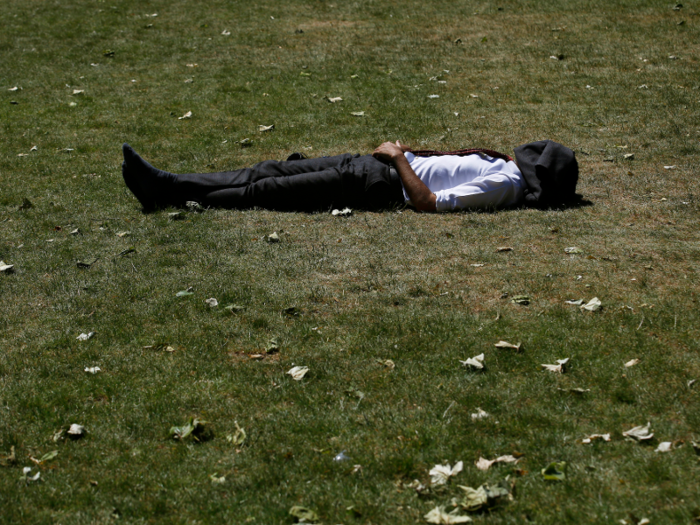- Home
- slideshows
- miscellaneous
- 5 people explain how their life unexpectedly changed after retiring early
5 people explain how their life unexpectedly changed after retiring early
Happiness doesn't really increase during early retirement.

Leaving your job could lead to an identity crisis.

According to Dogen, a self-named "grizzled veteran" of the early retirement life, one of the downsides of retiring early is suffering from an identity crisis if you've spent several years working in a profession, which plays a large part in shaping your identity.
"It's only after you leave your job do you truly realize how wound up you were in your profession," Dogen wrote. The identity crisis may last as little as three months or up to a few years depending on how wrapped up you were in your job, he said.
He added: "The most common question people ask when they first meet each other is: What do you do for a living? And if you tell them you don't do anything for a living, well then you might just feel like a sheepish loser."
With more time, you might need to find a new source of motivation.

That said, many early retirees end up needing to find a new source of motivation.
Brandon of the Mad Fientist, who retired early at age 34, previously said that his biggest mindset shift after retiring early was realizing that money was no longer motivating.
"This is quite a shocking and uncomfortable shift for me," he wrote. "Money has motivated my entire adult life until this point. Now, I have enough money (and even more than I expected) so it's not as important anymore."
While it's a great position to be in, he said, losing your main source of motivation can be disorienting.
"Some of the projects I planned to start after leaving my job were business ideas but now that earning more money isn't as appealing, I don't see the point," he wrote. "I've had to reevaluate my entire life and all my plans while simultaneously finding a new source of motivation."
Goals and dreams tend to change.

With a new source of motivation, it's not surprising that your goals and dreams might change.
Grant Sabatier, who retired early at age 30 with $1.25 million, previously told Business Insider he wish he knew how much was going to change.
"I spent five years and three months pretty much working nonstop to reach financial independence, and once I got there at the age of 30 and could retire early, I realized that I had changed a lot since I started — meaning my dreams, goals, and the things I liked to do were different than at 24," said Sabatier, the author of "Financial Freedom: A Proven Path to All the Money You Will Ever Need" and the blog Millennial Money.
He added: "The finance industry sells a level of precision around planning and numbers that's just unrealistic because people change. Life changes. We all change. So do the best you can and remember today is all you really have."
Life becomes about living outside of your comfort zone.

The act of retiring early itself — a departure from the the norm — is a step outside many comfort zones. With time on your hands and money in the bank, you should only continue to step outside your comfort zone once you take the initial leap.
Early retiree Steve Adcock of Think Save Retire said that getting out of your comfort zone can lead to more overall satisfaction. Getting out of your comfort zone can also help you make uncomfortable money decisions you're not used to — like cutting back and saving more, he said.
"Spending is an addiction, and people's minds keep planting the seeds of comfort within the decision-making process," he wrote. "In other words, early retirees make decisions that are in line and supportive of their financial goals and do not let society or friends/family affect their financial situation — even if those decisions are uncomfortable."
Adcock himself began declining dinner invites, forgoing expensive travel, downsizing his belongings, and sold his Corvette.
Popular Right Now
Popular Keywords
Advertisement